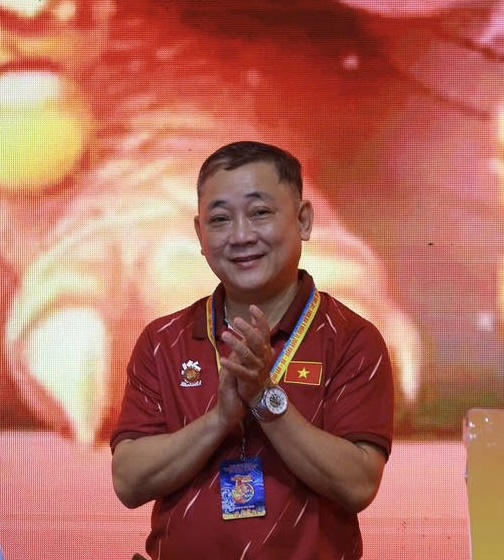 Society
Society

The rotation of senior State officials to key leadership positions at grassroots levels has proven effective in the northern province of Bắc Giang for years.

|
| A safe vegetable farm in Tiến Dũng Commune in the northern province of Bắc Giang. Rotated officials are said to speed up hi-tech agriculture productions in localities in the province.— VNA/VNS Photo |
BẮC GIANG — The rotation of senior State officials to key leadership positions at grassroots levels has proven effective in the northern province of Bắc Giang for years.
The activeness, creativeness and high responsibility of such officials had made a difference in the localities where they arrived.
Dương Văn Phong, vice chairman of Tiến Dũng Commune People’s Committee in the province’s Yên Dũng District, was rotated to the position in 2020.
Before that, he worked in the district People’s Committee including as the vice secretary of the district’s Youth Union Party Committee and vice head of the district’s agriculture department.
A graduate of Thái Nguyên Agriculture and Forestry University, Phong has a passion for farming.
Leading a commune where locals heavily rely on farming, he had the opportunity to make use of what he studied and what he was good at, Phong said.
The young vice-chairman introduced safe vegetable models and modern farming technologies to local farmers including Israeli automatic watering and fertilising systems.
As a result, clean vegetables from local co-operatives were accepted by major distributors like BigC, Vinmart and Saigon Co.op supermarkets.
Phong said many local co-operatives were increasing investment and expanding production to better meet market demand.
Another young official of Yên Dũng District, Nguyễn Mạnh Chiến, was rotated to Trí Yên Commune and has worked as chairman of the commune People’s Committee and secretary of the commune’s Party Committee since 2018.
Before the rotation, Chiến was the chairman of the Yên Dũng District’s Farmer's Association and a top leader of the district’s Youth Union.
With experience from frequently working with farmers and young people, Chiến made decisive moves in Trí Yên Commune, which focused on improving local transport infrastructure and implementing high-tech agriculture.
In October last year, Trí Yên Commune was recognised a new rural area model, with all local roads being improved, expanded and concretised.
Agriculture production models in the commune are seen as good examples for other localities to follow.
Vice head of Personnel Organisation Department of Yên Dũng District Party Committee Trần Văn Quỳnh said that in the last five years, the district moved six district senior officials to the grassroots level, of them, two are a commune People’s Committee chairman cum secretary of commune Party Committee, two others hold the position of People’s Committee chairman while two work as the secretary of commune Party Committees and vice chairman of commune People’s Committee.
“The personnel rotation policy pushes every official to make efforts to show their ability and impress both leaders and people,” Quỳnh said.
Vice secretary of Yên Dũng District Party Committee Tạ Quang Khải said he highly appreciated the performance of rotated young officials as they had experience and responsibility.
“In any position, assigned any tasks, they have fulfilled excellently and more importantly, they have gained the trust of local people,” Khải said.
Before any rotation, district leaders must know about difficulties, desires and expectations of local people, then select suitable personnel for the localities, Khải said. — VNS
The Politburo’s first regulation on personnel rotation was approved in October 2017, aiming at reducing redundancy and ensuring administrative leadership in disadvantaged areas. Regulation 98-QD/TW aims to implement a more effective personnel strategy when the process of national industrialisation and modernisation is being enhanced. Under the resolution, any official within the political system can be transferred to a different job, especially to disadvantaged areas in need. The move also aims to deal with the problem of personnel redundancy and resultant inefficiency. The rotation of officials also aims at filling key provincial and district positions with officials who are not local residents, while preventing officials from holding a position for more than two consecutive terms. The personnel rotation must happen under the leadership of Party committees at all levels, and ensure the principle of democratic centralism, the regulation says. Only senior and managerial officials are rotated under this regulation. It will not apply to those doing specialised work, except when there is a need for such staff in certain spheres or localities. Those who are transferred must be young, promising officials with good capacity, political virtues and moral lifestyles. — VNS |